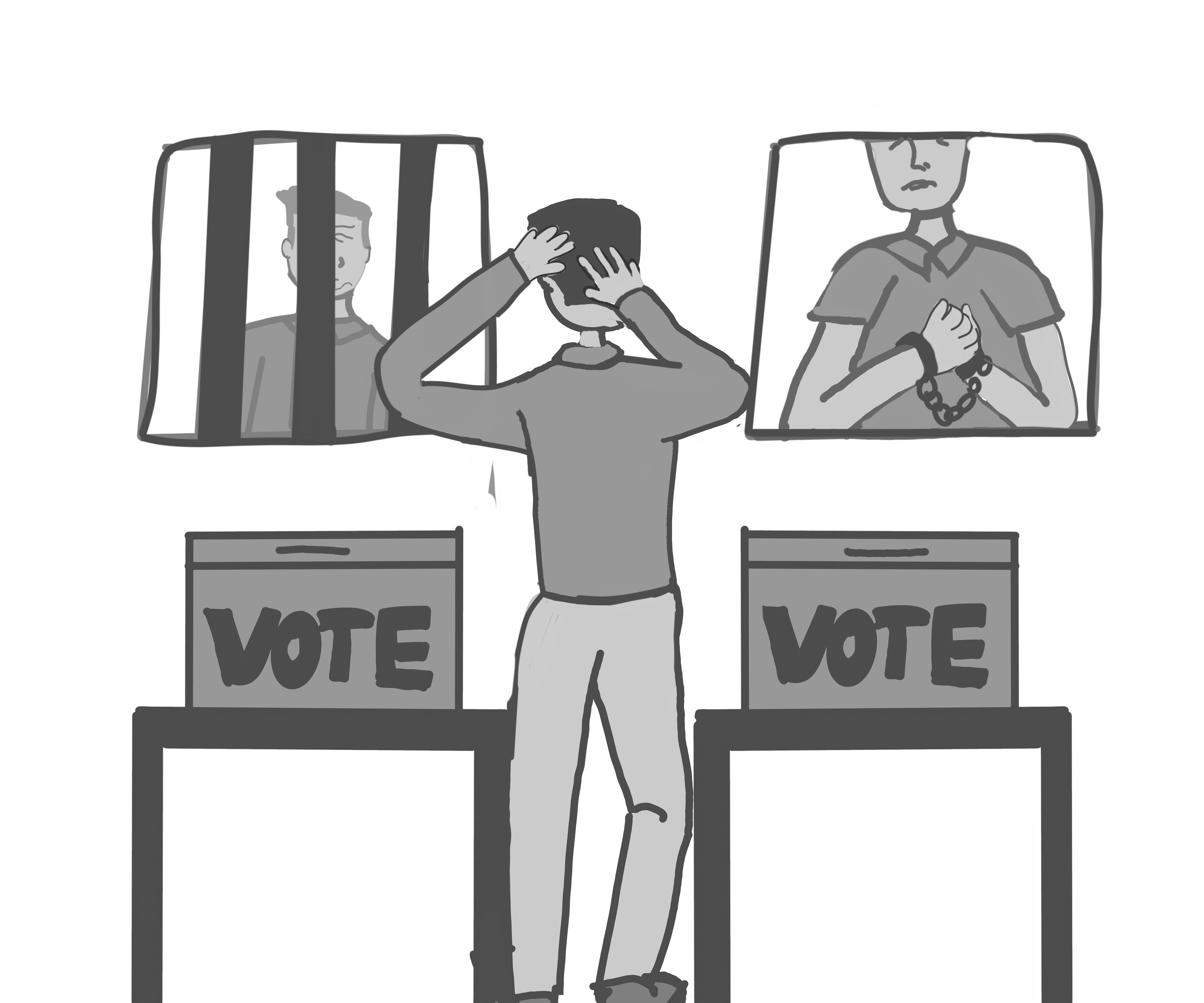What are the Standards for Our Political Candidates?
September, 2023
If we think of past U.S. presidents, many of them come from humble backgrounds, where hard work and passion ultimately secured them the presidency. Think Jimmy Carter, the humble peanut farmer who rose to fame. Or Barack Obama, the boy who moved back and forth from Hawaii and Indonesia and eventually discovered a passion for public policy. Even in the good old days of presidents we liked to trust, there was always a lack of trust in the truthfulness of the electoral system in our country, but recently we have developed a sense of numbness to political scandal. In the wake of recent political behavior including sexual assault charges, impeachments, lawsuits, slur usage, and arrests, our understanding for how we evaluate candidate behavior must change.
As the presidential election looms over the American population, the comparison of presidents and the comparison of their actions in general becomes an overwhelming topic of debate. Some candidates’ comments stand out over others such as Trump’s “nasty woman” or Kamala Harris’s “Mr. Vice President I’m speaking.”Although both of those examples have become synonymous with some political candidates, viewing them with the same level of concern is unfair considering the contexts in which each comment was made. While Trump’s comment to Hilary Clinton was intentionally offensive and very unnecessary, Harris’s comment to Mike Pence was far more justified, as the former vice president interrupted Harris multiple times throughout the vice presidential debate of 2020. As more students turn eighteen and have the power to vote, it is more common to hear the PHS politics buffs comment that the next election will be riddled with terrible candidates, or that they would rather have Chris Christie than Ron DeSantis as our next president. Granted, Christie did have his picture in Princeton Soup and Sandwich (we love a good local business supporter). But considering the George Washington Bridge shutdown scandal of 2013, where Christie seemingly caused traffic jams to get back at another politician, such a statement ten years ago would have been unthinkable. But in comparison with criminalizing abortion, banning books, or prohibiting drag performances in public, a simple traffic jam seems small.
Through this comparative lens, we can weigh candidates based on the worst things they have done relative to one another. However, this method of comparison makes it almost always possible to make the claim that one candidate would be better than another comparatively. However, it’s not the most effective way to choose the next congressperson, senator, Board of Education President, prom queen, and most importantly—president. Similarly, should we really be settling for an ideal leader of a country who is just one step above a mugshot?
Generally, when it comes down to a final presidential election, party loyalty creates the divide between candidates. A study in 2021 by the Washington Post regarding the 2020 election concluded that about 95% of registered Democrats voted for the Democratic candidate while only about 5% voted for a Republican candidate. A similar trend can be seen with registered Republicans about 95% of whom voted for the Republican candidate. Based on each person’s political party based biases, it makes sense that they will believe that the candidate that has done the fewest bad things will be the one who aligns with their own political values. Therefore, considering that the final election comes from party loyalty based biases, we would hope that the primary elections would eliminate the candidates that would have the most “wrong with them,” however you want to define that. Thus, the final candidates in a presidential election would not only hopefully have the least wrong with them, but would allow the trend of party loyalty to stay intact with a reasonable candidate on either side to settle for, as the most polarizing and problematic candidates would have already been eliminated.
In this context, doesn’t that make this the crunch time in which we should be working to eliminate the candidates who are the most problematic rather than settling for ones based on our lowered political standards? Granted, we assume that the final two candidates in an election would already be the least problematic, but we know from recent elections that our trust in a more moral candidate such as Hillary Clinton can still be surpassed by Donald Trump, a very controversial candidate that some people would have assumed would have been eliminated earlier on. Although cancel culture is cancellable in and of itself, it seems that any candidates who have cancelable traits such as sexual assault charges, evidence behind their stealing of an election, or slur usage, should not have as much power. When we see these kinds of traits in the art or music world we do our best to separate the art from the artist, but in this context, the art of public policy is so directly tied to the artist’s views and past actions that we should not be letting them slide or lowering our standards. While America continues to search for the presidential candidates, we should not look for the biggest persona and the craziest farmer, but instead, remember the humble peanut farmer. Carter is long gone, but he's a prime example of the candidate that we desperately need — hardworking, relatable, and passionate about truly improving the country.